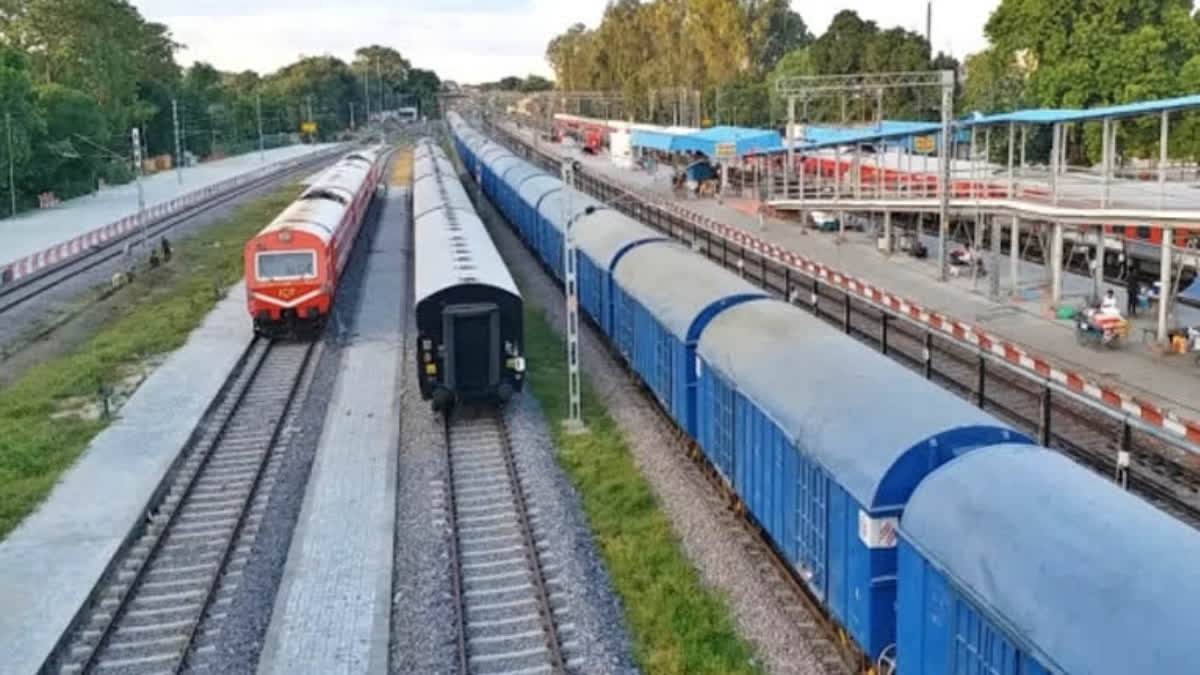New Delhi: In the backdrop of the June 2 Balasore triple train accident in which nearly 300 people were killed, a Parliamentary Committee has suggested to the Railway Ministry to arrange funds from Rashtriya Rail Sanraksha Kosh (RRSK) for providing indigenously designed train collision avoidance system 'Kavach' to the entire rail network at the earliest for the safety of the railways and passengers.
Submitting its 15th report in the Lok Sabha on Tuesday, the Parliamentary Committee on Railways chaired by Lok Sabha MP Ramesh Bidhuri said that efforts be now made to start contributing funds to RRSK so that the objectives of the extended currency of RRSK for the next five years are achieved and "Safety First and Safety Always" motto could be accomplished.
The RRSK was created in 2017-18 for a period of 5 years to ring-fence funds for the execution of works for renewal and replacement with safety-related implications with an annual contribution of Rs 20,000 crore (Rs 15,000 crore from GBS and Rs 5,000 crore from Railways' internal resources). Based on the recommendations of the Niti Ayog, the Government had agreed to extend the currency of RRSK for another five years term beyond 2021-22 with a contribution of Rs 45,000 crore from GBS.
As per government data, 'Kavach' system is deployed in 65 locomotives and 134 stations. As of December 2022, 1,455 km of tracks have been covered under 'Kavach'. At present, implementation of the system is in progress in Delhi-Mumbai and Delhi-Howrah corridors making up 3,000 km. The entire system is expected to be operational by 2027-28.
According to the Railway Ministry, safety has been accorded the highest priority and to achieve the objective of mission zero accident till 2021-22, an expenditure of Rs 74,444.18 crore has been incurred from Rashtriya Rail Sanraksha Kosh (RRSK) which consisted of Rs 70,000 crore from Gross Budgetary Support (GBS) and Rs 4,444.18 crore from internal resources.
Also read: What is 'Kavach' safety system lack of which allegedly caused Odisha triple train accident
The Ministry has said that the Railways could not contribute the intended funds to RRSK due to inadequate resource generation and non-availability of surplus funds for being deployed towards CAPEX.
According to the Ministry, adequate resource generation has been severely impacted by various factors like higher traction cost, repayment of lease charges, impact of COVID pandemic on operations and Railways’ social service obligations etc. resulting in reduction in Net Revenues and their ability to fund Capex from internal resource generation.
However, the Railways have stated that the shortfall in internal resource generation was supplemented by deploying Extra Budgetary Resources (s) (Market Borrowings) as per MoF guidelines to ensure that there was no shortfall in expenditure on RRSK works.
The Committee has noted that the net revenues of the Railways for the year 2016- 17 and 2017-18 were adversely impacted on account of sharp rise in staff cost to pursuant implementation of 7th Pay Commission, subsequently in 2019-20, 2020-21 and 2021-22 the adverse impact of Covid pandemic had limited the Railway’s ongoing efforts for enhancing net revenues.
While observing that the Railways should keep the targets for net revenues realistic and strive for achieving the same, the Committee had recommended to institute such remedial measures so as to plug the leakages and stem the trend of declining net revenues and to find ways to generate and augment net revenues.
In their action taken replies, the Ministry has reiterated its compulsion on account of implementation of 7th CPC and Covid Pandemic. The Committee has appreciated the effort of Railways for augmentation of net revenue by setting the target for 2022-23 for net revenue at Rs 2393 crore. The Committee asked the Ministry to come forward with a suitable action plan and corrective measures to contain the expenditure and improve revenue earnings to achieve the net revenue target set for the year 2023-24.
Also read: Balasore train accident result of government's misplaced priorities: Congress


